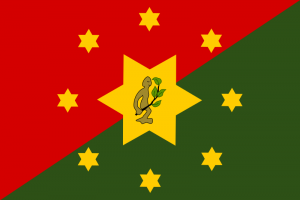Language/Agarabi/Grammar/Plurals
Hi Agarabi learners! 😊
In this lesson, we will learn about plurals in Agarabi grammar. As you continue to learn the Agarabi language, it is essential to understand how to form plurals correctly.
Once you've mastered this lesson, take a look at these related pages: Pronouns, Negation & Conditional Mood.
Table of Contents[edit | edit source]
Basics[edit | edit source]
In Agarabi, there are different ways to form plurals. One of the easiest ways is to add the suffix "-ne" to the singular form of the word. Here are some examples:
| Agarabi | Pronunciation | English |
|---|---|---|
| nwanza | /nwanza/ | boy |
| nwanza-ne | /nwanza.ne/ | boys |
| matako | /matako/ | buttocks |
| matako-ne | /matako.ne/ | buttocks |
Another way to form plurals is to use the suffix "-ha", which is added to the singular form. This method usually applies to words that end in vowels, such as:
| Agarabi | Pronunciation | English |
|---|---|---|
| roho | /roho/ | soul |
| roho-ha | /roho.ha/ | souls |
| mwana | /mwana/ | child |
| mwana-ha | /mwana.ha/ | children |
There are also some words in Agarabi that do not follow the above rules for making plurals. These words change entirely in the plural form, and some examples include:
| Agarabi | Pronunciation | English |
|---|---|---|
| mbuzi | /mbuzi/ | goat |
| mbega | /mbega/ | monitor lizard |
| mbawa | /mbawa/ | wing / feather |
For these words, the plural form must be memorized.
Contextual Usage[edit | edit source]
To understand plurals fully, it is essential to see how they are used in sentences. Below is a dialogue to illustrate this:
- Person 1: Nanjala alinunua nwanza. (Nanjala bought a boy.)
- Person 2: Nani walinunua nwanza-ne? (Who bought the boys?)
As the above example shows, adding "-ne" to "nwanza" changes the meaning. It becomes "boys" instead of "boy."
Interesting Facts[edit | edit source]
In some languages, the plural form of a word is only used when speaking of more than one of something. In Agarabi, plurals are used even when speaking of just two items, for example:
| Agarabi | Pronunciation | English |
|---|---|---|
| nwanza-ne mwezi | /nwanza.ne mwezi/ | two boys a month |
| matako-ne wawili | /matako.ne wawili/ | two buttocks |
This method applies even when the number after the noun exceeds two.
Another interesting fact is that in some parts of Agarabi speaking communities, people use different suffixes for nouns. For example, people from the coastal areas use "-ne" as the plural suffix instead of "-ha."
Practice Exercise[edit | edit source]
To get some practice with Agarabi plurals, try making some sentences in Agarabi using the different ways we have reviewed above. You can also look for Agarabi language partners on Polyglot Club. Find native speakers and ask them any questions!
Sources[edit | edit source]
➡ If you have any questions, please ask them in the comments section below.
➡ Feel free to edit this wiki page if you think it can be improved. 😎

